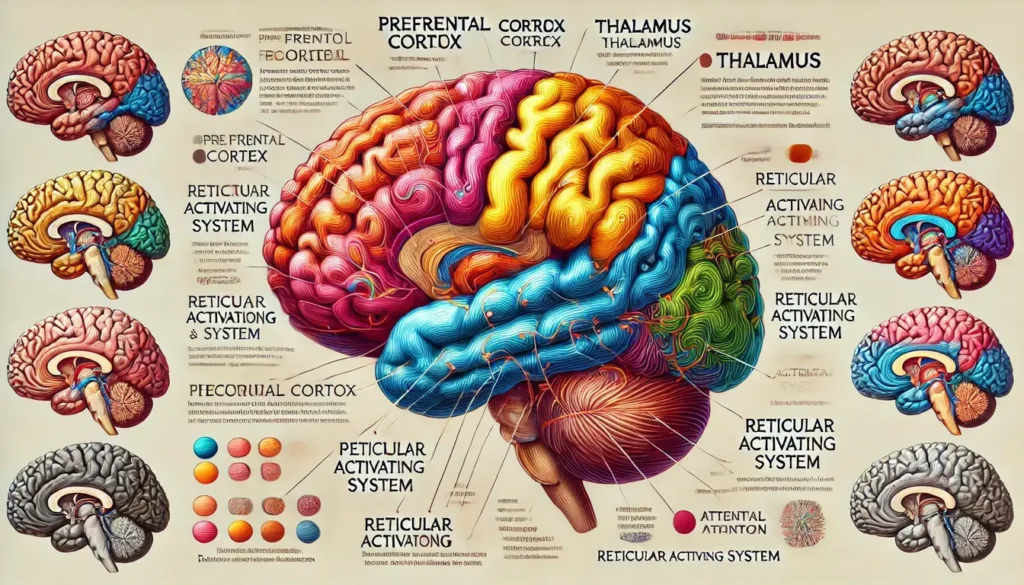In our fast-paced, distraction-filled world, focus is more than just a buzzword—it’s a superpower. The ability to zero in on what truly matters and block out the noise can make the difference between mediocrity and greatness. Whether you’re aiming to excel in your career, nurture meaningful relationships, or simply achieve your personal goals, focus is the key that unlocks your full potential. This article will delve into the power of focus, exploring how this single word—Focus: How This Power Word Can Make You Better—can become the cornerstone of your success.

What is Focus?
Focus isn’t just about paying attention. It’s the art of directing your mental energy toward a specific task, goal, or idea. Imagine you’re in a crowded room full of people talking, but you manage to tune in to a single conversation—that’s the focus. It’s about cutting through the noise and zeroing in on what truly matters.
Tony Robbins, a renowned motivational speaker, famously said,
“Where focus goes, energy flows.”
This simple yet profound statement encapsulates the essence of focus—it’s the conduit through which we channel our efforts and achieve results.
The Science Behind Focus
Before we dive into how focus can make you better, let’s take a quick look at what’s happening in your brain when you focus.
Neuroscientists often describe focus as a mental spotlight. When you focus, your brain illuminates a specific area of interest while dimming everything else. This process involves several key brain regions:
- Prefrontal Cortex: This is your brain’s control center for focus and attention.
- Thalamus: Acts as a relay station, deciding which information gets through to your conscious awareness.
- Reticular Activating System (RAS): Filters out unnecessary information, allowing you to concentrate on what’s important.
Understanding these brain mechanisms can help you appreciate the power of focus and how to harness it effectively.

The Benefits of Improved Focus
Now that we understand what focus is and how it works in our brains, let’s explore the myriad ways in which improving your focus can make you better.
1. Enhanced Productivity
One of the most immediate benefits of improved focus is increased productivity. When you’re able to concentrate deeply on a task, you can accomplish more in less time.
This heightened productivity not only drives superior results but also fosters a sense of autonomy. As individuals master focus, they become more autonomous, directing their own actions and decisions with increased confidence and precision.”
Consider the example of Cal Newport, author of “Deep Work.” Newport argues that the ability to perform deep work—intense focus without distractions—is becoming increasingly rare and valuable in today’s economy. By honing your focus, you’re not just working harder; you’re working smarter.
2. Better Decision Making
Focus isn’t just about getting things done; it’s also about making better choices. When you’re focused, you’re more likely to consider all aspects of a situation before making a decision.
Moreover, this ability to discern and decide is not just about clarity but also empowerment. Being focused empowers you to navigate through distractions, prioritize what truly matters, and assert control over your life’s direction.
Dr. Daniel Goleman, psychologist and author of “Focus: The Hidden Driver of Excellence,” explains that the more focused we are, the more powerful our decisions become. Focus acts as a filter, helping us separate the important from the unimportant.
Take, for example, Warren Buffett, one of the most successful investors in history. Buffett attributes much of his success to his ability to focus on a few key investments rather than spreading himself too thin. By improving your focus, you’re essentially sharpening your decision-making skills, leading to better outcomes in both your personal and professional life.
3. Increased Creativity
Contrary to popular belief, focus, and creativity go hand in hand. While some creative ideas come from moments of relaxation, the ability to focus deeply on a problem often leads to innovative solutions.
This intense concentration doesn’t just spark creativity; it cultivates an innovative mindset. A focused approach not only enhances productivity but also fosters innovative solutions to complex problems, setting the stage for groundbreaking advancements in any field.
Steve Jobs, co-founder of Apple, famously said,
“Focus and simplicity. Simple can be harder than complex: You have to work hard to get your thinking clean to make it simple. But it’s worth it in the end because once you get there, you can move mountains.”
By focusing intently on a challenge, you allow your mind to make unique connections and come up with creative solutions. Consider how Jobs revolutionized the technology industry by focusing on simplicity and user experience.
4. Improved Learning and Skill Acquisition
Whether you’re learning a new language, mastering a musical instrument, or developing a professional skill, focus is crucial. The ability to concentrate deeply allows you to absorb information more effectively and practice with greater intention.
K. Anders Ericsson, a psychologist known for his research on expertise, emphasizes the importance of focused practice. He found that expert performers in any field—whether it’s sports, music, or chess—dedicate years to deliberate, focused practice to achieve mastery.
By enhancing your focus, you’re setting yourself up for more efficient and effective learning in any area of life.
5. Reduced Stress and Anxiety
In our multitasking-obsessed world, the ability to focus on one thing at a time can be a powerful antidote to stress and anxiety. When you’re fully engaged in a task, you’re less likely to worry about other concerns or feel overwhelmed by your to-do list.
Jon Kabat-Zinn, a mindfulness expert, explains that paying attention is how we cultivate mindfulness. By improving your focus, you’re essentially practicing a form of mindfulness that can lead to greater peace of mind and emotional well-being.

How to Improve Your Focus
Now that we’ve explored the benefits of focus, you might be wondering how to enhance this crucial skill. Here are some practical strategies to sharpen your focus:
1. Practice Mindfulness Meditation
Mindfulness meditation is like a gym workout for your attentional muscles. By practicing regularly, you can improve your ability to focus and resist distractions.
Start with just 5 minutes a day of sitting quietly and focusing on your breath. When your mind wanders (and it will), gently bring your attention back to your breath. Over time, you’ll find it easier to maintain focus in other areas of your life.
2. Use the Pomodoro Technique
The Pomodoro Technique is a time management method that involves working in focused 25-minute intervals followed by short breaks. This technique can help you maintain intense focus for short periods while avoiding burnout.
Here’s how it works:
- Choose a task.
- Set a timer for 25 minutes.
- Work on the task until the timer rings.
- Take a 5-minute break.
- Repeat the cycle.
- After four “pomodoros,” take a longer break (15-30 minutes).
3. Create a Distraction-Free Environment
Your environment plays a crucial role in your ability to focus. Take steps to minimize distractions in your workspace:
- Turn off notifications on your phone and computer.
- Use noise-canceling headphones if you’re in a noisy environment.
- Keep your workspace clean and organized.
- Use website blockers to avoid time-wasting sites during work hours.
4. Practice Single-Tasking
Despite the popular myth of multitasking, our brains are not designed to focus on multiple complex tasks simultaneously. Instead of trying to juggle multiple tasks, practice single-tasking:
- Choose one task to focus on.
- Give it your full attention.
- Complete it (or reach a good stopping point) before moving on to the next task.
As you practice single-tasking, you’ll likely find that you’re more productive and less stressed.
5. Take Regular Breaks
It might seem counterintuitive, but taking regular breaks can actually improve your focus. Our brains aren’t designed for extended periods of intense concentration.
Try the 52-17 rule: Work focused for 52 minutes, then take a 17-minute break. During your break, do something completely different—take a walk, chat with a colleague, or do some light stretching.
6. Get Enough Sleep
Never underestimate the power of a good night’s sleep when it comes to focus. Lack of sleep can significantly impair your ability to concentrate.
Aim for 7-9 hours of quality sleep each night. Establish a consistent sleep schedule and create a relaxing bedtime routine to improve your sleep quality.
7. Exercise Regularly
Physical exercise isn’t just good for your body—it’s also great for your brain. Regular exercise has been shown to improve focus, memory, and overall cognitive function.
Aim for at least 150 minutes of moderate-intensity exercise or 75 minutes of vigorous-intensity exercise each week.
8. Practice Mindful Eating
Believe it or not, how you eat can impact your ability to focus. Mindful eating—paying full attention to your food as you eat it—can help train your brain to focus better in other areas of life.
Try eating one meal a day without any distractions. No TV, no phone, no reading—just you and your food. Notice the flavors, textures, and sensations as you eat.

Overcoming Common Focus Challenges
Even with these strategies in place, you might encounter some common focus challenges. Let’s address a few and how to overcome them:
1. Digital Distractions
In our hyper-connected world, digital distractions are perhaps the biggest threat to focus. Here are some tips to manage them:
- Use apps like Freedom or Cold Turkey to block distracting websites and apps during work hours.
- Practice the “out of sight, out of mind” principle with your phone.
- Designate specific times for checking emails and social media.
2. Mental Fatigue
Mental fatigue can make it difficult to focus even on important tasks. To combat this:
- Take regular breaks throughout the day.
- Practice stress-management techniques like deep breathing or progressive muscle relaxation.
- Ensure you’re getting enough sleep and exercise.
3. Lack of Interest
It’s hard to focus on tasks we find boring or uninteresting. To overcome this:
- Find ways to make the task more engaging (e.g., turn it into a game or challenge).
- Remind yourself of the task’s importance or how it connects to your larger goals.
- Use the “5-minute rule”—commit to working on the task for just 5 minutes. Often, you’ll find it easier to continue once you’ve started.
The Long-Term Benefits of Improved Focus
As you begin to implement these strategies and overcome challenges, you’ll likely notice immediate improvements in your ability to focus. But the real magic happens when you consistently practice these techniques over time.
Personal Growth
Improved focus can lead to significant personal growth. As you become better at directing your attention, you’ll find it easier to pursue your goals, develop new skills, and overcome obstacles.
Reduced Stress and Anxiety
In our multitasking-obsessed world, the ability to focus on one thing at a time can be a powerful antidote to stress and anxiety. When you’re fully engaged in a task, you’re less likely to worry about other concerns or feel overwhelmed by your to-do list.
Moreover, this singular concentration makes you virtually unstoppable. With enhanced focus, you can push past barriers that once seemed insurmountable, achieving your goals with unprecedented resolve
Career Advancement
In the professional world, the ability to focus deeply is becoming increasingly valuable. As you enhance your focus, you may find that you’re more productive, creative, and effective in your work, potentially leading to career advancement opportunities.
Improved Relationships
Focus isn’t just about work and productivity—it can also enhance your personal relationships. By being more present and attentive in your interactions with others, you can deepen your connections and improve your communication skills.
Greater Life Satisfaction
Ultimately, the ability to focus on what truly matters can lead to greater life satisfaction. By directing your energy toward your most important goals and values, you’re more likely to create a life that feels meaningful and fulfilling.

Conclusion: The Power of Focus
In a world full of distractions, the ability to focus is truly a superpower. By understanding what focus is, recognizing its benefits, and implementing strategies to improve it, you’re setting yourself up for success in all areas of life.
Remember, improving your focus is a journey, not a destination. Be patient with yourself as you practice these techniques and celebrate your progress along the way. As you continue to hone this crucial skill, you’ll likely find that you’re not just doing better—you’re becoming better.
So, are you ready to harness the power of focus? Your journey to a more focused, productive, and fulfilling life starts now. As the ancient Chinese philosopher Confucius wisely said,
“The man who moves a mountain begins by carrying away small stones.”
Start small, stay consistent, and watch as the power of focus transforms your life, one focused moment at a time










